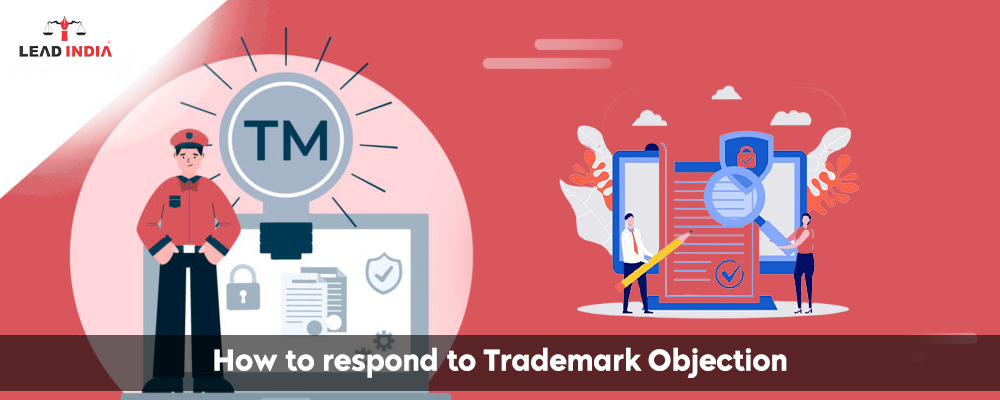To identify their products as unique and distinguishable, businesses and companies employ logos, designs, or a specific collection of phrases. These graphics or words assist consumers in identifying the brand, quality, and even the product’s origin. As a result, the marks used by these companies in the course of their business are known as trademarks. In India, trademarks are recognized as intellectual property and hence protected from violation under applicable law(s).
Need A Legal Advice
The internet is not a lawyer and neither are you. Talk to a real lawyer about your legal issue

The Trademark Act of 1999 (hereafter referred to as the Act) governs trademark laws, including its registration, protection, and punishment. Such protection applies to both the corporation and the customer.
Objection to Trademark
An objection is a preliminary stage in the registration procedure. The Examiner/Registrar or a third party might file it. An Examiner or Registrar may object under Section(s) 9 (Absolute Grounds of Refusal) and 11 (Relative Grounds of Refusal) of the Act on principally two grounds:
- If the information in the application is insufficient or incorrect, or
- If a similar trademark already exists.
A third party may object to a trademark registration on the grounds of public interest. There are two ways for a third party to object to a trademark registration.
- When the mark is published in the Trademark Journal or
- When the applicant utilizes the mark before registration. In this situation, the application status will be modified to Advanced Before Acceptance.
When you file an objection, the application’s status will change to “Opposed”. When filing an objection, the opposing party must include the grounds for opposing the trademark’s registration. The examiner will allow the applicant to defend his application by the Act’s procedures.
How to respond to Trademark Objection
Once an objection is submitted, the applicant will be given adequate notice of the objection as well as the grounds for it.
- The first step is to respond to the objection with a counterstatement.
- This must be done within two months after the receipt of the notice of objection.
- If an objection is not filed within two months, the application’s status will be changed to abandoned.
After the counter is filed, the Registrar may call for a hearing; if he determines in favor of the applicant, the trademark will be registered. If he rules in favor of the opposing party, the trademark will be removed from the Journal, and the registration application will be denied. At this point, the applicant may file an appeal with the Intellectual Property Appellate Board (IPAB).
- The appeal must be submitted within three months of the date the Registrar issued the order.
- If an appeal is submitted after three months, the applicant must explain the cause for the delay by filing a petition for condonation of delay, along with a Rs 2,500 fee. If the IPAB accepts the rationale, the appeal will be scheduled for a hearing.
- The filing must follow the guidelines outlined in the Trademarks (Applications, Appeals, and Fees to the Intellectual Property Appellate Board) Rules (hence referred to as Trademark rules).
- The applicant must verify all of the documents.
- The Deputy Registrar must then endorse every application on the date when it is presented.
- If the Deputy Registrar discovers any problems with the application, he will give notice of them.
- The faults must be addressed, and the applicant must resubmit the application within two months.
- If you fail to do so, the Deputy Registrar will consider the application abandoned.
- If the application is deemed to be in order, the Deputy Registrar will register it and provide a serial number.
After the case is registered, the IPAB will hear it. The location of the hearing will be determined by the jurisdiction under which the case comes under rule 2(m). The matter will be heard on a set date. The hearing will proceed accordingly.
- The IPAB will decide the case based on the representations of the two parties.
- If a party fails to appear at the hearing, the IPAB may:
1. Judge the matter on its merits.
2. Give an ex parte order (in the absence of one party)
3. Dismiss the case
If the matter is dismissed or ruled ex parte, there is a 30-day period from the date of the ruling to submit a petition against the previous order. The case will be heard, and the IPAB’s decision will stand. If the applicant is dissatisfied with the IPAB’s order, he may file an appeal with the High Court with appropriate authority. Subsequent appeals may also be filed with the Supreme Court of India.
Lead India offers various legal services, such as free legal advice and internet information. We provide a facility in which you can talk to a lawyer and ask legal questions regarding the law here. Lead India’s lawyers can assist you with any legal issues. In India, Lead India provides free legal assistance online. In addition to receiving free legal advice online, Lead India allows users to pose inquiries to experts for free.





 Talk to a Lawyer
Talk to a Lawyer